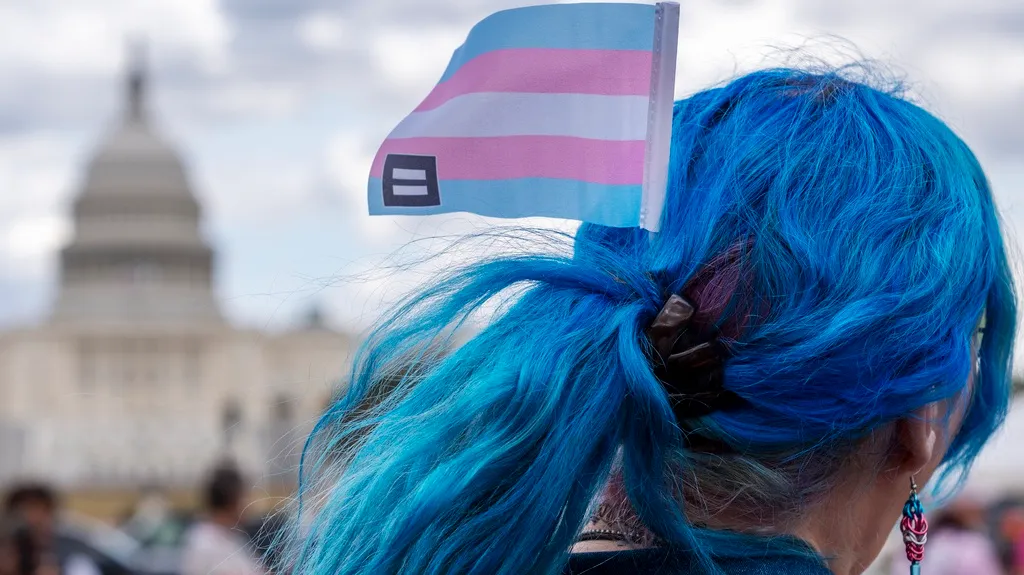February 10, 2014
How Russia Hits Back at Slights Over WWII Victory
Jason St. Amand READ TIME: 5 MIN.
The Sochi Winter Olympics are making Russians beam with pride. But while the opening ceremony left out World War II at the behest of international Olympic organizers, Russia's role in defeating Nazi Germany is still one of the nation's proudest moments, as some have found out the hard way.
Perceived slights to Russian pride caused an independent television station to be forced off the air and the Moscow correspondent of a U.S. network to be summoned to the Foreign Ministry for an official reprimand. In the latest display of Russian displeasure, a prominent anchor on state television insinuated that U.S. Marines depicted in the war memorial near Washington looked as if they were engaged in gay sex.
Here is a look at what caused Russians to react so strongly and how the Kremlin responded:
LENINGRAD LEGACY
The independent television station Dozhd, or TV Rain, came under attack after asking viewers in January whether the Soviet Union should have surrendered Leningrad, now St. Petersburg, to save the lives of the 1 million people who died during the nearly 900-day Nazi siege of the city during the war. The station quickly pulled the poll and apologized, but President Vladimir Putin's spokesman said the station had crossed a "red line." Russian cable providers lined up to drop Dozhd from their packages and prosecutors opened an investigation.
The poll struck a nerve with Russians for whom the resistance in Leningrad exemplified the suffering and heroism of the war. But the station's owner and editor have accused the Kremlin of using the poll to shut down Dozhd because of its critical reporting. The station has provided a platform for opposition leaders and reported on allegations of official corruption, including during Olympic preparations.
After major cable and satellite providers dropped Dozhd, its viewership has fallen from 17 million households to 2 million, according to station owner Nataliya Sindeyeva. While never able to compete with the state channels, Dozhd has been popular with urban middle-class Russians disturbed by the corruption and growing authoritarianism under Putin.
AN "UGLY" MONUMENT
U.S. television network CNN caused a firestorm when it included a war monument in Brest, a city in the former Soviet republic of Belarus, in an article on the "world's ugliest monuments" published last month. The piece said the Soviet soldier "emerging from a mountainous block of concrete looks as if he's about to thump the West into submission before hurling North America at the sun." It also noted that others think the soldier "simply looks constipated."
On Feb. 6, CNN edited the story on its website and added a note apologizing for the offense it caused in Belarus and Russia.
The following day, the Russian Foreign Ministry took the unusual step of summoning CNN's Moscow correspondent for an official reprimand. The journalist was told that "mocking the memory of Soviet soldiers who gave their lives for the victory over fascism cannot be justified or forgiven," the ministry said in a statement on its website.
The U.S. network then withdrew the article entirely.
"CNN apologizes for the unintended offense caused by an article from a contributor that was intended to be a humorous look at monumental architecture worldwide," it said in a statement. "We recognize that the Courage Monument carries deep and significant symbolism in honoring the soldiers who gave their lives defending their nation."
MARINES MOCKED
A controversial news anchor on Rossiya state television went after CNN during his weekly show, which aired Sunday night following the team skating competition in Sochi that gave Russia its first gold medal of the Winter Games.
As pictures of the monumental Brest sculpture filled the screen, Dmitry Kiselyov told viewers how the Americans had ridiculed the Soviet soldier depicted in the war memorial. He then showed a picture of the Marine Corps War Memorial sculpture shot from behind, so that the U.S. Marines raising the flag during the Battle of Iwo Jima were bent over one another.
"It's easy to mock," Kiselyov said with his trademark smirk. "A fevered subconscious could ascribe just about anything to it. Take a closer look: A very modern theme, is it not?"
Kiselyov has often led the attack on Americans, gays or other groups that top the Kremlin agenda. As international criticism over a Russian law banning gay "propaganda" reached a fever pitch last year, he said homosexuals' hearts should be buried or burned.
In December, Putin appointed Kiselyov the new head of the state news agency RIA Novosti, which after serving as the host agency during the Olympics will be restructured.
OPENING CEREMONIES
The producer of the opening ceremonies said he had planned to include a segment on World War II in the show, but the International Olympics Committee strongly advised against it. The IOC insisted the war was still too sensitive an issue and including the segment would set a bad precedent, Konstantin Ernst said in an interview Sunday on Ekho Moskvy radio.
Ernst said he found it extremely difficult and even painful to omit the segment, which he said could have been "the strongest moment of the whole ceremony."


